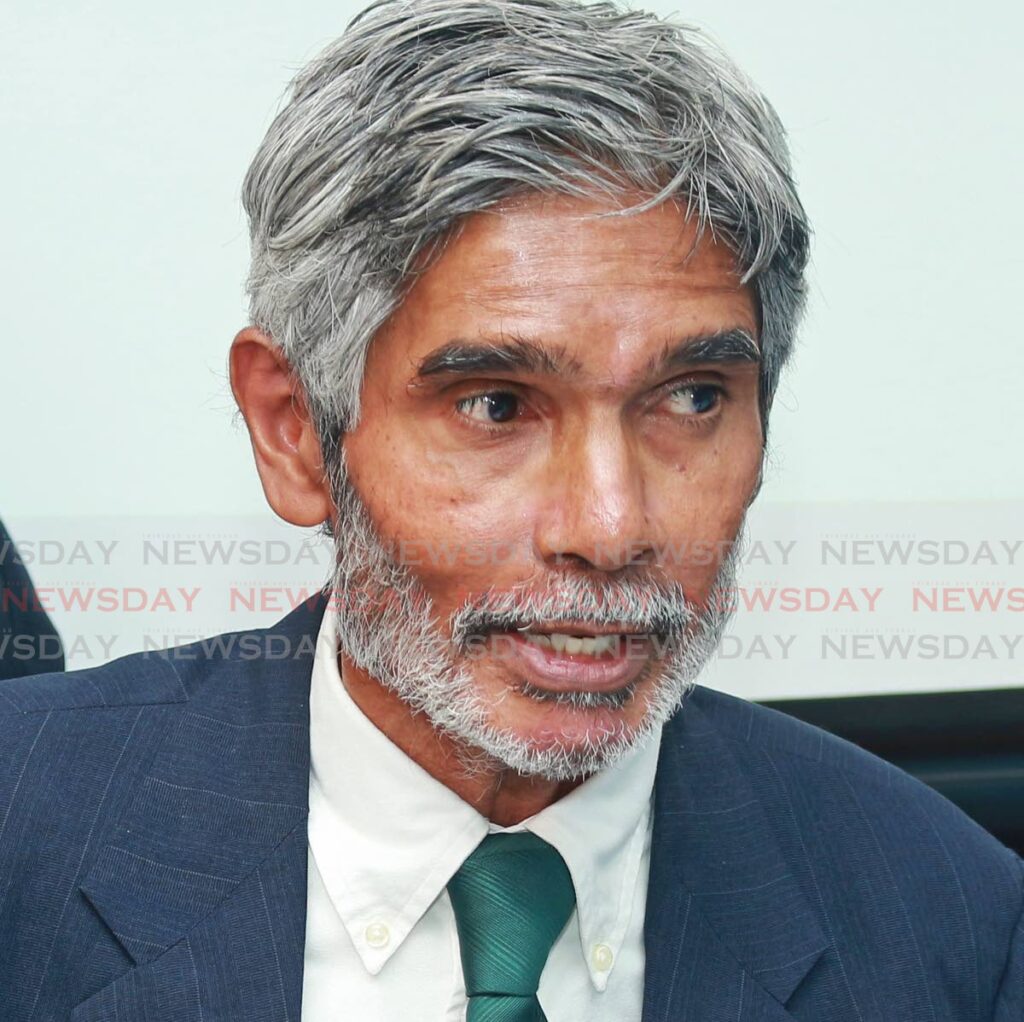Some random man from Arima

WAYNE KUBLALSINGH
I AM A random man from Arima. I am always lounging about in Arima. Going by De Boss Ah Soup to buy sweetbread and soup. Used to always be there in the market joking with my “pwatique,” taking my son to the merry-go-round, going for ice cream and pizzas. Yes, I am a random man from Arima.
It was a random man from Arima, the son of a blacksmith, a pupil of the Arima Government Primary School, who, from the beat of his father’s hammer, the strum of his box guitar, migrated to Port of Spain in 1943 to regale the Victory Tent and others with the staccato of pan in his voice. Tempo, tune, timing, like a tin full of shillings rolling down Laventille Hill. Prancing and dancing in the bamboo hall, like a kerchief or flag in a flag-woman’s hand.
It was this random Arima man who travelled to England in the Empire Windrush in 1948, worked, opened a nightclub in Manchester, and returned home to bequeath us such classics as Mama Dis Is Mas, Margie, Rainorama, Tribute to Spree Simon, Miss Tourist and Flag Woman; emblazoning his name on the dazzling mint of calypso.
It was random groups of Africans, abandoning sugar estates in the middle of the 19th century, finding refuge in tenement yards in the suburbs, discovering they had no goat to kill, for membrane, to sound the trammelled music in their blood, began to ransack old scrapyards. Tin pans. Steel oil drums. No whole hog, we will take the snout, tail, feet, blood, the throwaway parts. Rummaging and rummaging and beating and beating, they invented the pan.
Random men and women, in yards, beating late into the night. Random men and women under caps, in basketball jerseys and shorts, in sneakers, the faces of the bass drums half-hidden under the canopy, sounding the ancestral drum, rhyme, rhythm and reason of Africa.
It is random men and women who kept ancestral African mask alive. The mask, of raffia, wood or copper, behind which the voice of God entered the community, and gospelled, tongue-lashed, prophesied. Random men and women walking through country roads and Belmont lanes, masked, painted – bats, robbers, devils, jab jabs, sailors, Indians, moko jumbie, baby dolls.
Random men and women walking through the streets of the city and main towns, even in hot weather, even suffering discomfort, even dehydrated, even without audience, but moving on, as if programmed by some DNA, blood, unseen historical mandate or mission. And the random wire-benders, designers, crafting every manner of bird, bat, bee, beetle, bachac, battimamselle, human being.
It is the same random men and women, who, returning from their invisibility of outta Carnival season, mount the stages to give their best wit, lines, commentaries, in extempore, kaiso, or its now popular emergent child, soca.
Random men and women carrying the voice of the ancestral West African court jester, the griot, the wandering troubadour. Panegyrics or scorn. Sacred or salacious. Humour or lament. In furious attack or defence of the court (political party), or tribe.
Random men and women, rising to stardom, not through collusion or family heritage, but via voice. Shadow, Valentino, Sparrow, Black Stalin, Machel Montano, Funny, Blake, Cypher, all so diverse, varied.
I hope that the recent judgement of Justice Frank Seepersad, in the matter Inshan Ishmael v Cro Cro and COTT, in which the learned justice awarded $250,000 in general, aggravated and exemplary damages to Ishmael, for damage to his reputation and company, is not interpreted by calypsonians that they should now close up shop on critique or commentary on any ethnic group.
Calypso owes its genesis to a whole range of verbal attack, sarcasm, irony, innuendo, double entendre, picong, wit, vituperation or plain broadside blasting, in oral form dating back to ancestral Africa. The calypso is the epitome of African genius in TT. It is the repository of African civility and wit. Dealing foes bois or wood or lash is what is called poetic conceit, a rhetorical device. It is a non-violent trope.
Much has been said about the death of the calypso. Is African wit, ingenuity, verbal panache, picong, linguistic elegance and sophistication, humour dead? No. The calypso is not dead. But it is being tested, not by soca, an offshoot, but by a pinch of its own bigotry.
It is one thing to say that Inshan Ishmael is another Sat; but quite another to say that he and his company sell stolen car parts.
It is one thing to say that Kublalsingh is a random man from Arima, but another to say Kublalsingh stole a Heidelberg gold press machine to make his bookbinding money; did not buy it from Germany with hard-earned cash. Got his Masters from UWI and Columbia University, his PhD from Oxford because he cheated; his father, a house painter, bribed for him to pass Common Entrance. And that his children should be kidnapped, because he raided the treasury and stashed money abroad. For kidnapping Kublalsingh’s children is good for the economy.
Only Africans can save Carnival from its current iniquities. Create a revival, a renaissance, save it from the “thust” for big money, the beads, the bikini, its pinch of bigotry.


Comments
"Some random man from Arima"